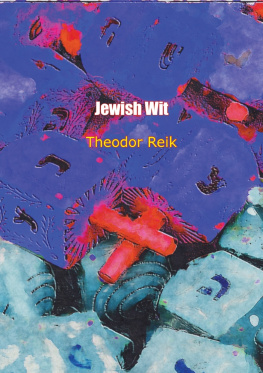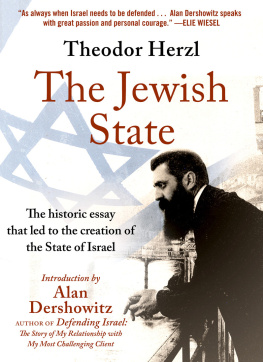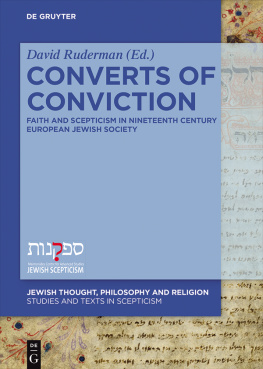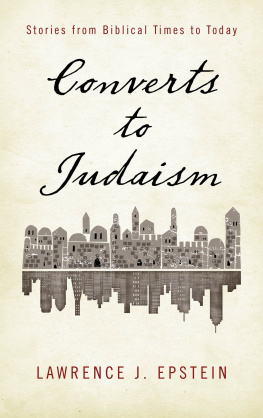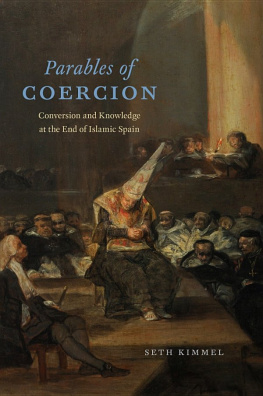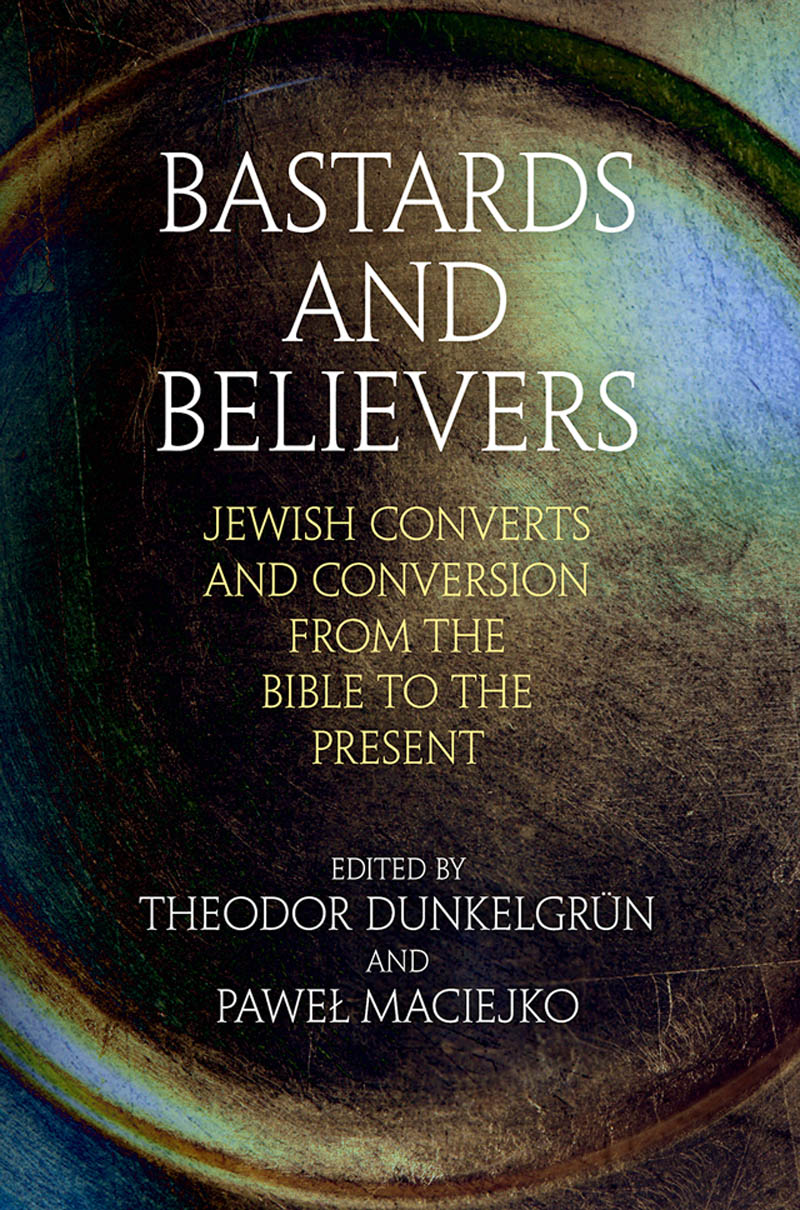Bastards and Believers
JEWISH CULTURE AND CONTEXTS
Published in association with the Herbert D. Katz Center for Advanced Judaic Studies of the University of Pennsylvania
Series Editors: Shaul Magid, Francesca Trivellato, and Steven Weitzman
A complete list of books in the series is available from the publisher.
BASTARDS AND BELIEVERS

Jewish Converts and Conversion from the Bible to the Present
Edited by
Theodor Dunkelgrn and Pawe Maciejko

Publication of this volume was assisted by a grant from the Publications Fund of the Herbert D. Katz Center for Advanced Judaic Studies of the University of Pennsylvania.
Copyright 2020 University of Pennsylvania Press
All rights reserved. Except for brief quotations used for purposes of review or scholarly citation, none of this book may be reproduced in any form by any means without written permission from the publisher.
Published by
University of Pennsylvania Press
Philadelphia, Pennsylvania 19104-4112
www.upenn.edu/pennpress
Printed in the United States of America on acid-free paper
10987654321
Library of Congress Cataloging-in-Publication Data
Names: Dunkelgrn, Theodor, 1976 editor. | Maciejko, Pawe, 1971 editor.
Title: Bastards and believers : Jewish converts and conversion from the Bible to the present / Theodor Dunkelgrn and Pawe Maciejko.
Other titles: Jewish culture and contexts.
Description: 1st edition. | Philadelphia : University of Pennsylvania Press, [2020] | Series: Jewish culture and contexts | Publication of this volume was assisted by a grant from the Publications Fund of the Herbert D. Katz Center for Advanced Judaic Studies of the University of Pennsylvania. | Includes bibliographical references and index.
Identifiers: LCCN 2019031271 | ISBN 9780812251883 (hardcover)
Subjects: LCSH: Christian converts from Judaism. | JewsConversion to Christianity. | Jewish converts from Christianity. | Jewish Christians. | ConversionChristianityHistory. | ConversionJudaismHistory.
Classification: LCC BV2620 .B35 2020 | DDC 248.4/466dc23
LC record available at https://lccn.loc.gov/2019031271
Contents

Theodor Dunkelgrn and Pawe Maciejko
Sara Japhet
Andrew S. Jacobs
Ephraim Kanarfogel
Paola Tartakoff
Javier Castao
Claude B. Stuczynski
Anne Oravetz Albert
Michela Andreatta
Sarah Gracombe
Elliott Horowitz
Ellie Schainker
Netanel Fisher
THEODOR DUNKELGRN AND PAWE MACIEJKO
In The Merchant of Venice (act 3, scene 5), the clown Launcelot Gobbo briefly becomes a theologian, explaining to Shylocks daughter, Jessica, that she is damned beyond salvation:
Clown Yes, truly, for look you, the sins of the father are to be laid upon the children therefore, I promise you, I fear you. I was always plain with you, and so now I speak my agitation of the matter. Therefore be of good cheer, for, truly, I think you are damned. There is but one hope in it that can do you any good, and that is but a kind of bastard hope neither.
Jessica And what hope is that, I pray thee?
Clown Marry, you may partly hope that your father got you not, that you are not the Jews daughter.
Jessica That were a kind of bastard hope indeed, so the sins of my mother should be visited upon me.
Clown Truly, then, I fear you are damned both by father and mother: thus, when I shun Scylla your father, I fall into Charybdis your mother; well, you are gone both ways.
As David Nirenberg has written, The Merchant of Venice is a drama of chronic conversion whose every participantincluding playwright and viewermoves suspended like a compass needle trembling between Judaism and Christianity. It is only through conversion that Jessica escapes the collective guilt that Christian doctrine had attributed to Jews for centuries and would continue to attribute to them for centuries to come. Without conversion, her hopes to escape her Jewish heritage would be illegitimate bastard hopes. Yet no sooner has Jessica declared her salvation by marrying a Christian than Gobbo the theologian turns back into Gobbo the clown:
Jessica I shall be saved by my husband; he hath made me a Christian!
Clown Truly, the more to blame he; we were Christians enow before, een as many as could well live on by another. This making of Christians will raise the price of hogs if we grow all to be pork eaters, we shall not shortly have a rasher on the coals for money.
Gobbos (that is, Shakespeares) joke is on the Christians: even beyond conversion, the Jew continues to affect their lives for the worseand indeed, remains somehow essentially Jewish. Or, in this case, it is Jessica who becomes the true Christian, while the clown exchanges his economy of salvation for the supply and demand of the Venetian market. In terms of the play, Gobbo (whose name alludes to the Italian form of Job) becomes more Jewish than Jessica. Nirenberg speaks of the plays systematically staged confusion of Christian and Jew, arguing that it is through this more generalindeed all-pervasiveconfusion that Shakespeare achieves his dramatization of a crucial question: How can a society built on Jewish foundations of commerce, contract, property, and law consider itself Christian? The questions spring forth: Can a Jew become a legitimate Christian? Is Christianity a legitimate offspring of Judaism? How do answers to these questions change when the terms of that legitimacy change? Is it possible to leave Judaism entirely? Is it possible to become a Jew? Are all Christians somehow Jewish? Are all Jews potentially Christian? Is a convert a Jew, a Christian, or perhaps a category unto itself? Does he or she become an illegitimate child of the old tradition? A legitimate child of the new one? Is such an individual a bastard or a believer? Or both?
The term conversion is profoundly polysemous. We use it to speak of a change of religion: Jews who turn to religions other than Judaism and non-Jews who tie their fates to that of the Jewish people. We use it when talking about Christians becoming Muslim (or vice versa), Christians becoming born again or moving from one Christian church or confession to another, or efforts to Christianize or Islamize indigenous populations of Asia, Africa, and the Americas. And we use it to speak about modern, secular people discovering spiritual creeds and joining religious communities. Once a metaphor drawn from astronomy and alchemy to describe religious change, we now use it as a metaphor drawn from religion to describe various changes of mind, such as conversions to political ideologies, philosophies of life, and all manner of vocation. Converts themselves use the term for a plurality of experiences, too: forced and voluntary, sudden and extended, public and private, social and metaphysical. This vast historical, cultural, and contextual variety implies, as the medievalist Karl F. Morrison puts it, that it would be a confusion of categories to use the word


